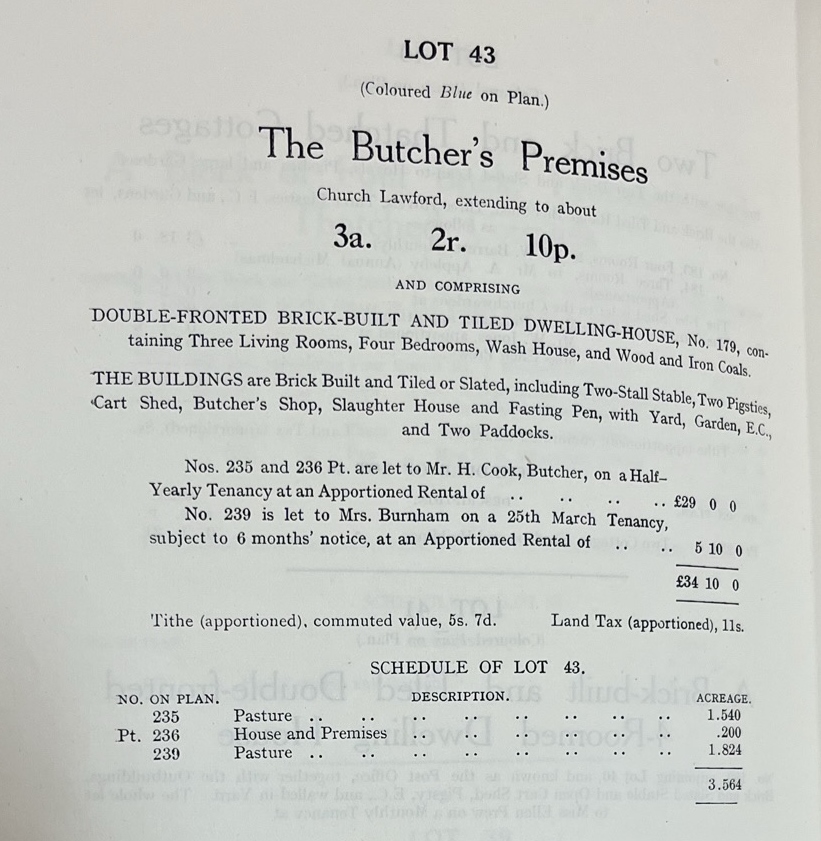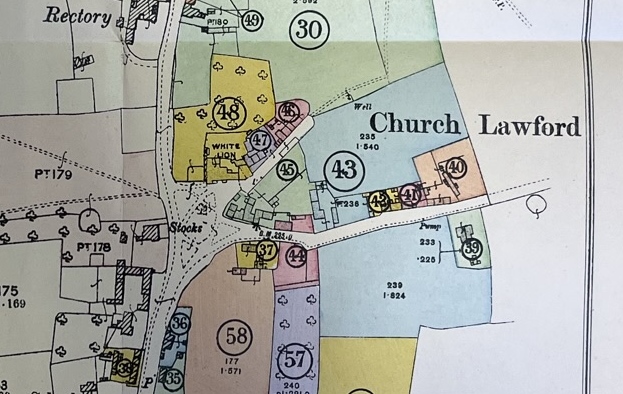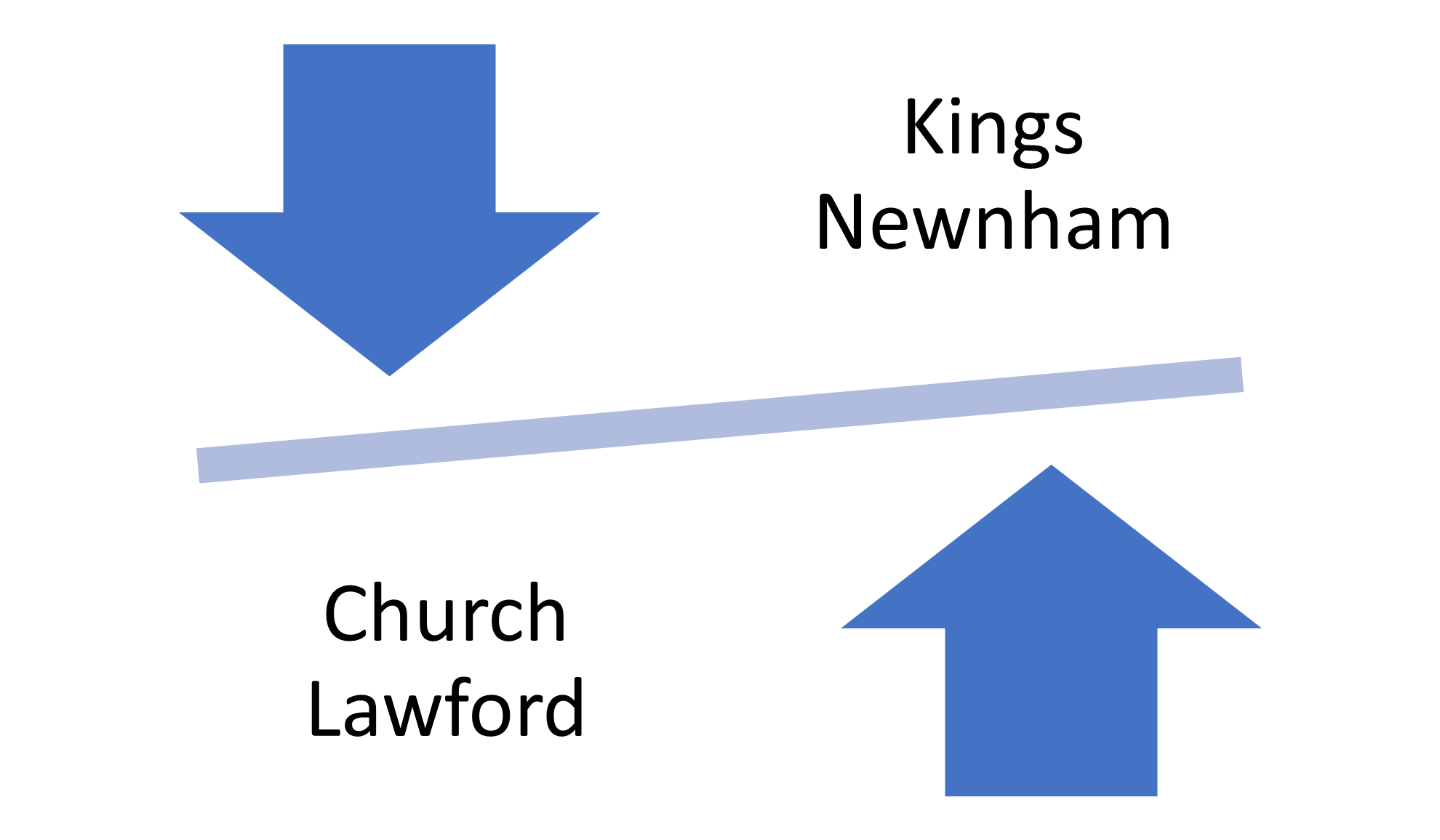For many years the Village Butcher was based in a smallholding in Church Road, later to become a farm where the Derek Barnwell and his family were tenants.
At the time of the Village Sale in 1918, the Butcher “in residence” as a tenant was Harry Mason Cooke (1866-1949). Harry was the son of Walter Cooke, and thus part of a family who were a key part of village life for so many years. Two of his brothers, Arthur and Fred, were based at the Triangle Garage performing roles as diverse as wheelwright and undertaker, and all three gave their time to various local activities. Harry had lived in the village all of his life apart for the four year spell when he was an apprentice butcher. He had bought the property during the 1918 auction.
He was assistant overseer to the village for over 40 years, ensuring the poorer members of the community were catered for, and was also a noted cricketer
The butchers business ensured that local produce was made available throughout the year. The fields opposite were used to keep beef cattle, and many villagers kept a pig, and the meat tended to be shared around. Harry was noted for travelling around locally selling the produce, which may explain where there was no butcher listed in Kings Newnham.
Harry’s son Bill Cooke (1900-1958) took over the smallholding as a farm rather than as a butchers business, living in Cottage 179 which still stands today as part of the farmhouse. He originally owned land either side of Church Road, as can be seen on the map below, but had to sell some of the land towards the white gate over the years. On inheriting the farm he took on the support of Derek and Nina Barnwell, who continued the farm after he died in 1958.
Prior to Harry Mason Cooke setting up as the Village Butcher in around 1890, the role had been fulfilled by William Dalton since around 1850, and prior to that there were two butchers in the village – Daniel Cotton and John Wright were both listed as Butchers in 1835.


